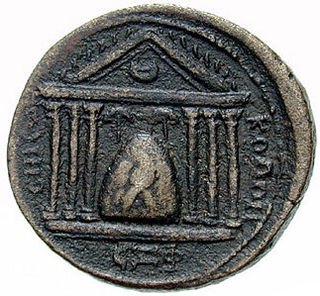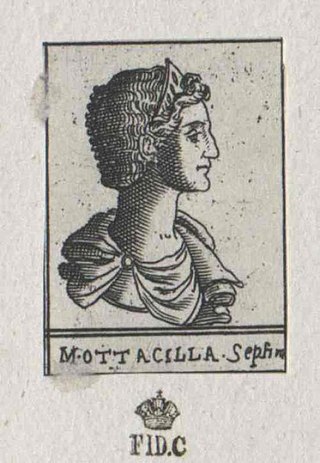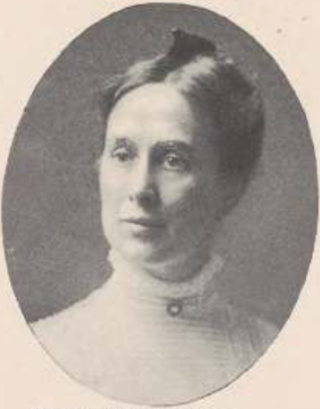Related Research Articles

The Severan dynasty was an Ancient Roman imperial dynasty that ruled the Roman Empire between 193 and 235, during the Roman imperial period. The dynasty was founded by the emperor Septimius Severus, who rose to power after the Year of the Five Emperors as the victor of the civil war of 193–197, and his wife, Julia Domna. After the short reigns and assassinations of their two sons, Caracalla and Geta, who succeeded their father in the government of the empire, Julia Domna's relatives themselves assumed power by raising Elagabalus and then Severus Alexander to the imperial office.
Year 170 (CLXX) was a common year starting on Sunday of the Julian calendar. At the time, it was known as the Year of the Consulship of Clarus and Cornelius. The denomination 170 for this year has been used since the early medieval period, when the Anno Domini calendar era became the prevalent method in Europe for naming years.
The 210s decade ran from January 1, 210, to December 31, 219.
Sextus Varius Marcellus was a Roman aristocrat and politician from the province of Syria. He was father of the emperor Elagabalus.
Philostratus or Lucius Flavius Philostratus, called "the Athenian", was a Greek sophist of the Roman imperial period. His father was a minor sophist of the same name. He was born probably around 170, and is said by the Suda to have been living in the reign of emperor Philip the Arab (244–249). His death possibly occurred in Tyre c. 250 AD.

Publius Septimius Geta was Roman emperor with his father Septimius Severus and older brother Caracalla from 209, when he was named Augustus like his brother, who had held the title from 198. Severus died in 211, and although he intended for his sons to rule together, they proved incapable of sharing power, culminating with the murder of Geta in December of that year.

Julia Domna was Roman empress from 193 to 211 as the wife of Emperor Septimius Severus. She was the first empress of the Severan dynasty. Domna was born in Emesa in Roman Syria to an Arab family of priests of the deity Elagabalus. In 187, she married Severus, who at the time was governor of the Roman province of Gallia Lugdunensis. They had two sons, Caracalla and Geta. A civil war over the Roman throne broke out in 193, and shortly afterwards Severus declared himself emperor. The war ended in 197 with the defeat of the last of Severus's opponents.

Julia Maesa was a member of the Severan dynasty of the Roman Empire who was the grandmother of emperors Elagabalus and Severus Alexander, elder sister of empress Julia Domna, and mother of Julia Soaemias and Julia Mamaea. She wielded influence during the reigns of her grandsons as Augusta of the Empire from 218 to her death, especially on their elevation to emperors.

Julia Avita Mamaea or Julia Mamaea was a Syrian noble woman and member of the Severan dynasty. She was the mother of Roman emperor Alexander Severus and remained one of his chief advisors throughout his reign. She was killed in 235 by rebel soldiers alongside her son.

Marcus Antonius Polemon Pythodoros, also known as Polemon II of Pontus and Polemon of Cilicia, was a prince of the Bosporan, Pontus, Cilicia, and Cappadocia. He served as a Roman Client King of Pontus, Colchis, and Cilicia.

Julius Bassianus was an Arab high priest of Elagabalus at the Temple of the Sun in Emesa, Syria, where this solar deity was worshipped in a shape of a black stone. The name Elagabalus derives from Ilāh and gabal, resulting in "the God of the Mountain," the Emesene manifestation of the deity. Bassianus was a member of the Royal family of Emesa, which was a part of the Arab aristocracy in this client kingdom of the Roman Empire. The beginning of his priesthood is unknown, but by 187 he was a high priest at Emesa. Bassianus was a son of a Julius and his paternal uncle was Julius Agrippa, who served as a Primipilaris.

Julia Cornelia Paula was a distinguished Roman noblewoman who became Empress of Rome as the first wife of the Roman emperor Elagabalus, who divorced her.

Aurelia Paulina was a local prominent noblewoman in Anatolia who lived in the 2nd century and perhaps in the 3rd century in the Roman Empire. She was a contemporary to the rule of Roman Emperor Commodus and the Severan dynasty.
Gaius Julius Alexion was a Syrian Prince and Roman Client Priest King of Emesa. He was the son of Syrian king Sohaemus and Queen Consort Drusilla.
Domna can refer to:
Julius Alexander also known as Julius Alexander of Emesa was prince from the Royal family of Emesa who lived in the 2nd century.
Julius Agrippa was a Syrian nobleman from the Royal family of Emesa who lived in the 2nd century.

Paccia Marciana was the first wife of Septimius Severus, who later became Roman emperor. They married around 175 and she died of natural causes around 186.

Mary Gilmore Williams was an American college professor. She taught Greek at Mount Holyoke College from 1898 to 1929, and wrote a study of Roman empresses.
References
- ↑ Greek sophists in the Roman Empire By Glen Warren Bowersock Page 103 ISBN 0-7156-1262-X
- ↑ Julia Domna, Syrian Empress By Barbara Levick Page 113 ISBN 0-415-33143-9